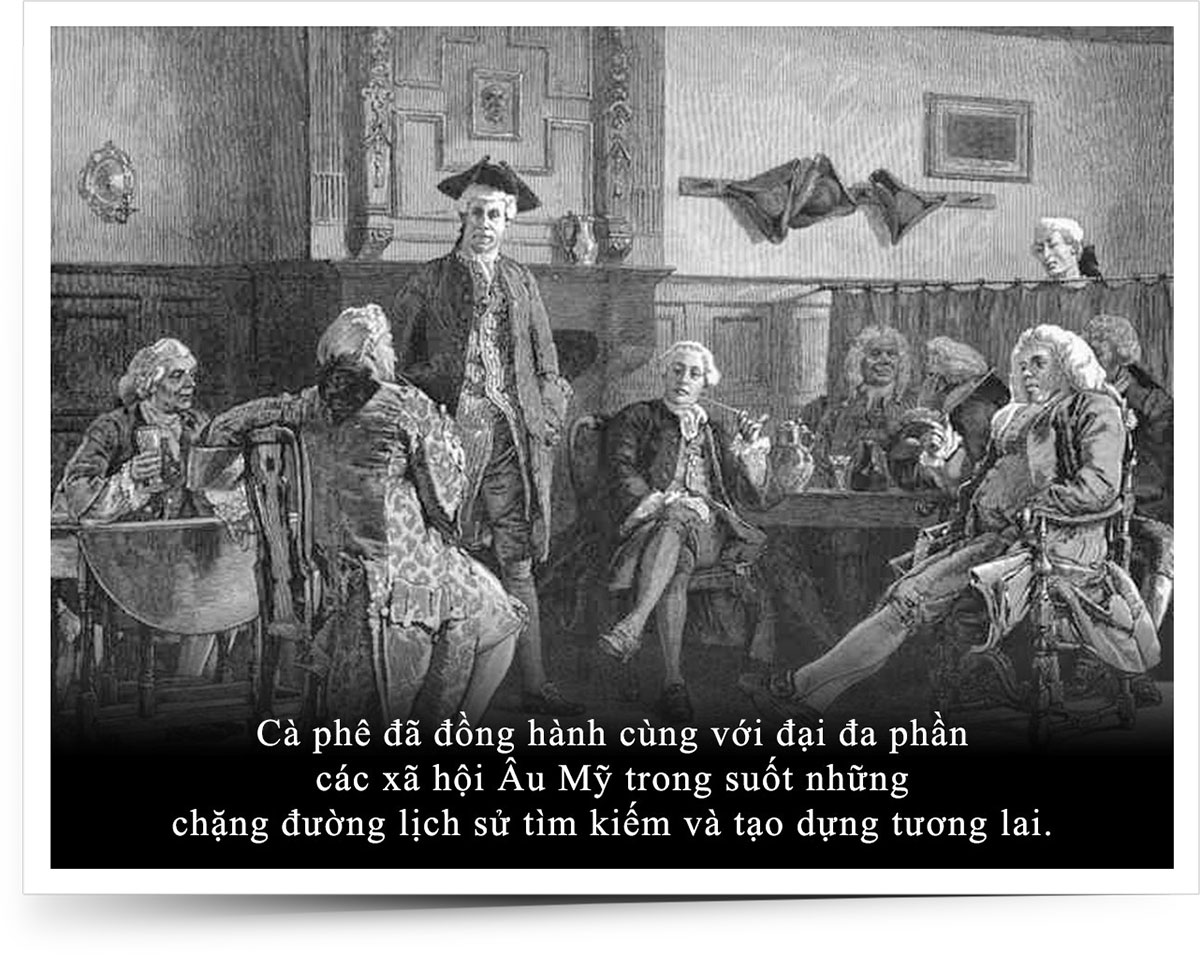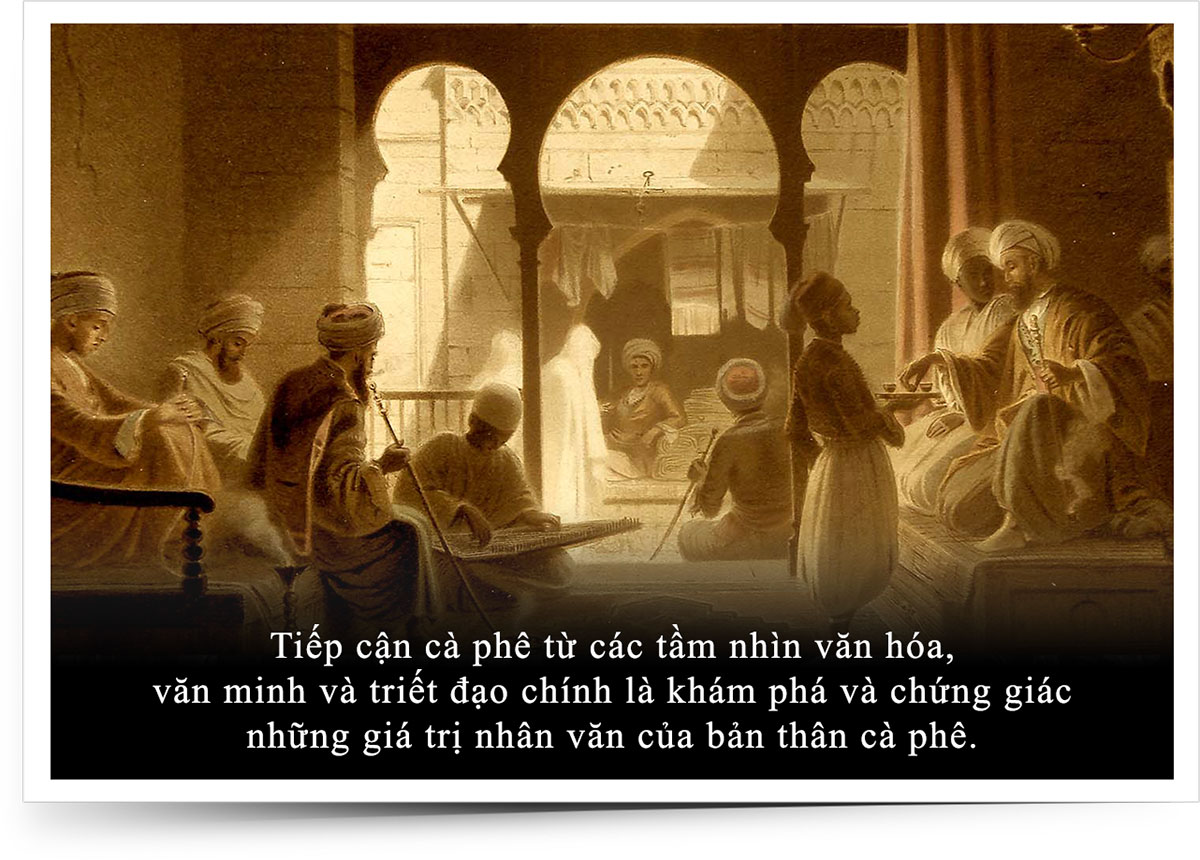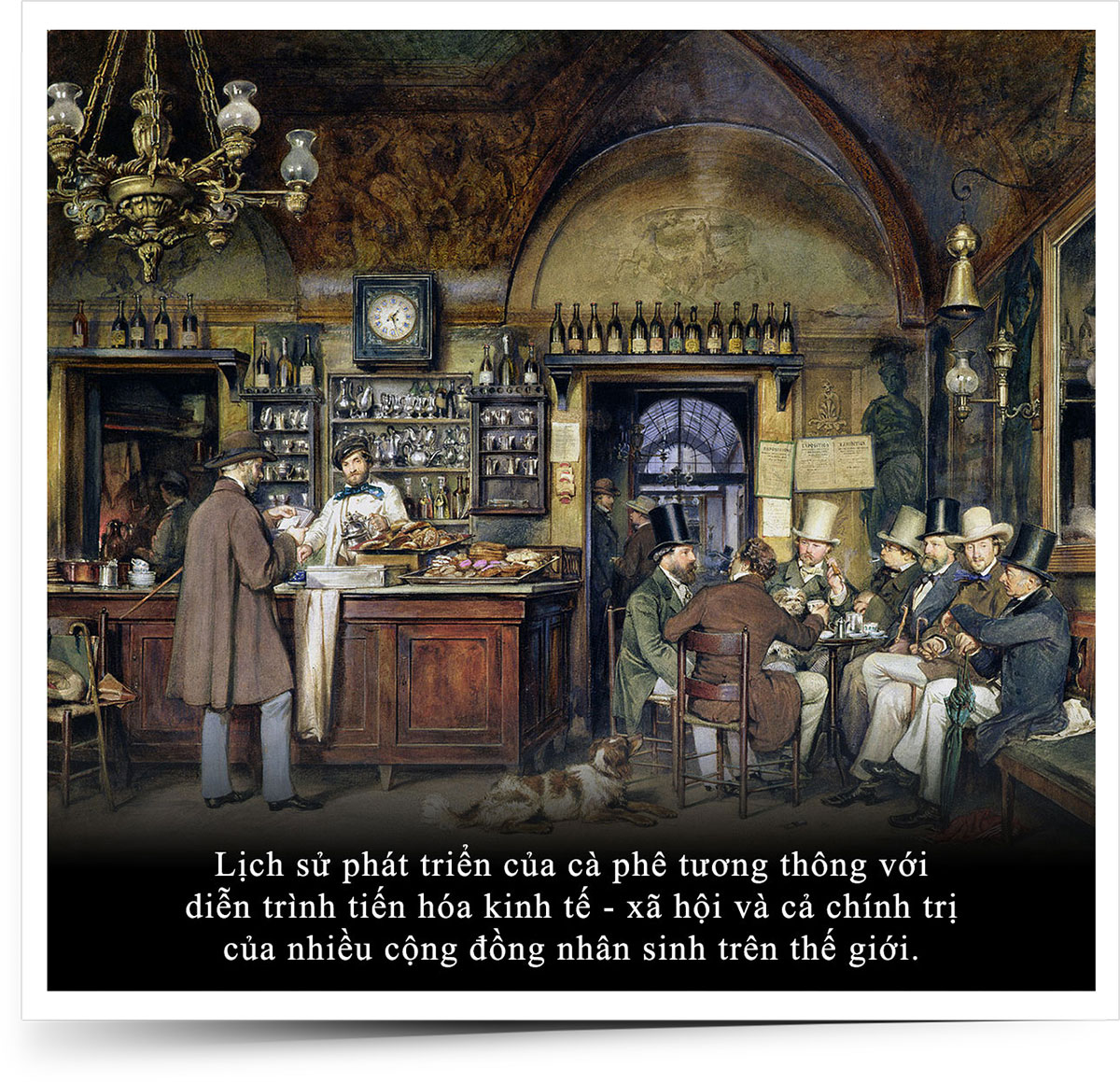Article 2: Coffee from the perspective of culture, civilization

Coffee accompanied most of European and American societies throughout the history of seeking and building the future.
The Japanese have positioned the Tea Ceremony as a national ethic, an art of living conveyed through enjoying a cup of tea. Meanwhile, Vietnam – a coffee powerhouse in the world, has the best Robusta coffee beans in the world, has a long herritage of coffee culture for hundreds of years; and yet, Vietnamese coffee is still in the low-end market segment, mainly exported raw and has not been properly positioned as it should be in the perspective of an industry and a nation.
With the desire to bring Vietnam’s coffee industry to a new level, pitching the value of coffee not only as a common drink but as cultural coffee, art coffee, spiritual coffee… all the way to philosopher’s coffee, worthy of the status of the world’s coffee powerhouse – Trung Nguyen Legend Group has dedicated time and passion for many years researching history, culture, art… coffee from all walks of life so that coffee could be become “Coffee of Philosophy”.
On the Trung Nguyen Legend’s creative and development journey, the spirit of commitment to serving the community has always been at the core throughout with many initiatives to Create Great National Aspirations and Great National Intentions; in order to reposition Vietnam’s coffee industry on the world coffee map and on this journey, Trung Nguyen Legend wishes to join hands with national strategists so that Vietnam will soon become a strong nation that influences the world!
The Japanese did it!
The Vietnamese can do it too and do it better!
Having mastered the “soul” and the “spirit” of the surrounding realm, only then one can perceive the meaning of action and life. From such a perspective, one will understand the indispensable role of “Philosophy of Life”.
The East has “tea way” and “wine way”, then the West has a “coffee civilization”, “wine culture” and the “oil and gas mentality”. But today, in the process of degeneration of the “oil and gas mentality” – originating from the trend of abdication of the “mineral economy” giving way to the obvious prospect of the Green Economy – “coffee civilization” of the West asked himself to find a new way of enlightenment. To make it short, spreading gradually and as if at the same time with the spirit of the “Age of Enlightenment” in Western Europe, coffee accompanied most of European and American societies throughout the historical journeys of seeking and building the future: it is not without reason that the language of Europe has displayed such touching images as “Homo Coffea” (Coffee Man) or “Société de Cafés” (Café Society) or “Caffeine Nation”.
In that context, the somewhat familiar saying of “packaging cultural values into coffee…” is easily misleading. Because the above expression has treated coffee as if it has no cultural value; therefore, we should be “packaging cultural values in”! It isn’t so. Michel Angelo, one of the best known sculptors in art history, had a different view, condensed in short and memorable writings. For example, “I saw the angel in the marble and carved until I set him free” or “every block of stone has a statue inside it and it is the task of the sculptor to discover it”.
Looking at coffee from the perspective of culture and civilization is the same: one should not inject subjective interpretations into coffee to promote his desire; one should discover and realize the humanistic value of coffee itself, throughout history, from its origins to its becoming a commodity which is not only among the most traded in the world, but also has a pioneering function that opens the way for the trend of “fair trade” aiming at “sustainable development”, being recognized as the ultimate goal of humanity in searching for a “new socio-economic order”.

Looking at coffee from the perspective of culture and civilization one should discover and realize the humanistic value of coffee itself
The way of posing the problem as above requires an approach that is both macro and micro, that is, broad enough to cover the relationship between the historical development of coffee and the socio-economic evolution and development, including the political dynamics of several human communities around the world; and yet, detailed enough to absorb the complexity of those processes that simultaneously affect several aspects of human life, from material to spiritual.
The above approach also requires both synchronic and diachronic analysis, that is, deep and horizontal cuts of the structure of the era are needed to understand the multidimensional correlations between events occurring in different fields; and long, vertical cuts along the line of history – both forward and backward – to detail the cause and effect of events.

The development history of coffee correlates with the socio-economic and political evolution of many human communities around the world.
After all, having mastered the “soul” and the “spirit” of the surrounding realm, only then one can perceive the meaning of action and life. And only then one can really understand the ultimate goal of economics and business activities, which are not simply a matter of “selling and buying, trading, money in, product out”. For, as in the concept of “kinh tế” (Vietnamese for “economics”) in “kinh ban tế thế” which means “managing the state to serve the people”, or “kinh thế tế dân” which means “manage life to serve the people”, “kinh doanh” (Vietnamese for “business”) means “expanding the territory both vertically and horizontally to build the economy and to serve the people (originally, “kinh” means vertical, “doanh” means horizontal). Only from such perspective can one understand the indispensable role of the “Philosophy of Life” in Economics and Business as well as in Living as a Human being.


